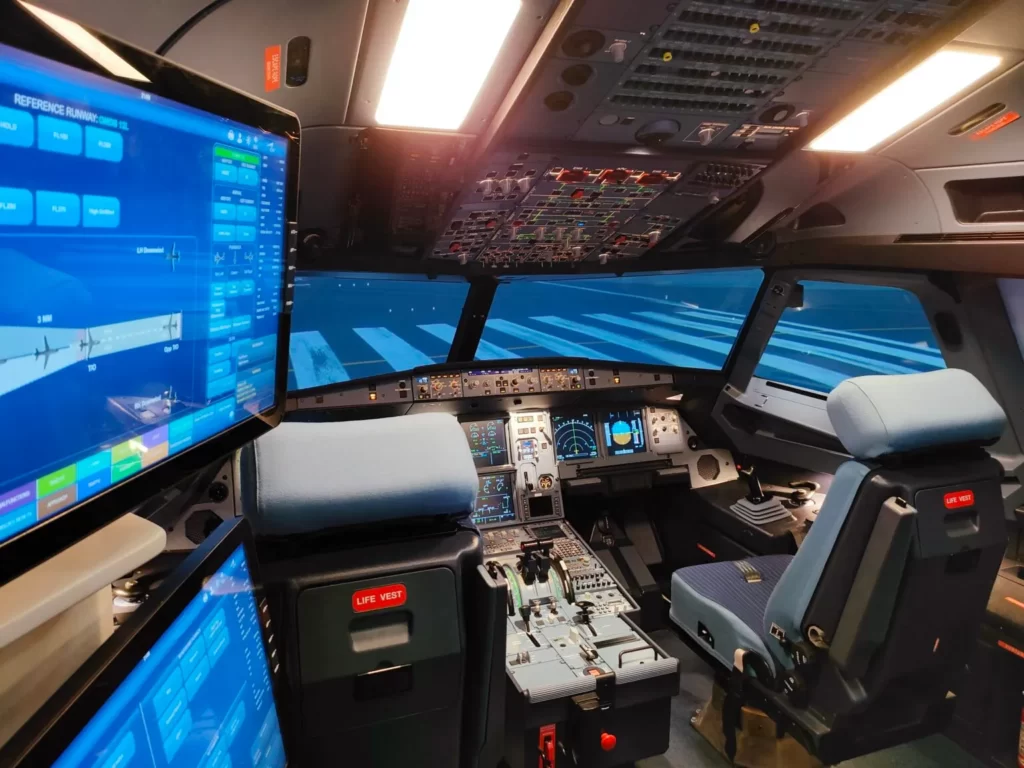Pier Seven Aviation Blog
- Home
- Our Blog
What are the Medical requirements for pilots?
Aspiring pilots need to meet specific medical requirements to become a licensed pilot. The medical requirements are in place to ensure that pilots are physically and mentally fit to operate an aircraft safely. In this Pier Seven Aviation blog, we will discuss the medical requirements for pilots and the process involved in obtaining a medical certificate.
The Federal Aviation Administration (FAA) is the regulatory body responsible for overseeing the medical certification of pilots in the United States. The FAA has set specific medical standards that pilots must meet to obtain a medical certificate. The medical certificate is divided into three classes, namely Class 1, Class 2, and Class 3, and the class required depends on the type of flying the pilot intends to do.
European Union Aviation Safety Agency (EASA) has also laid out detailed Rules for Medical Requirement for aviation. The rules are contained in so-called Part-MED, which covers aviation safety rules related to the medical aspect and fitness of aircrews. DGCA has also laid down specific regulation for medical tests and fitness and while all agencies may have different steps but all focus on the safety and suitability of each applicant.

Class 1 Medical Certificate
A Class 1 medical certificate is required for pilots who fly commercial airlines or air transport. Pilots holding a Class 1 medical certificate undergo a more thorough medical examination to ensure that they meet the highest medical standards. The Class 1 medical certificate is valid for one year for pilots under the age of 40 and six months for pilots over the age of 40.
Class 2 Medical Certificate
A Class 2 medical certificate is required for pilots who fly private planes, corporate aircraft, or air traffic control. The Class 2 medical certificate is less stringent than the Class 1 certificate and is valid for one year for all pilots.
Class 3 Medical Certificate
A Class 3 medical certificate is required for pilots who fly recreational aircraft or gliders. The Class 3 medical certificate is the least stringent of the three classes and is valid for up to five years for pilots under the age of 40 and two years for pilots over the age of 40.
The medical examination for obtaining a medical certificate involves both physical and mental assessments. The physical examination includes a review of the pilot’s medical history, blood pressure, vision, hearing, and overall physical condition. The mental assessment involves a review of the pilot’s psychological and emotional well-being to ensure that they are mentally fit to operate an aircraft safely. To obtain a medical certificate you must first book a medical examination, which take place at an Aeromedical Centre (AeMC). These are specially approved medical facilities authorised to issue initial medical certificates for pilots.
The following are some of the medical conditions that could disqualify a pilot from obtaining a medical certificate:
Cardiovascular Conditions
Pilots with a history of heart disease, high blood pressure, or stroke may be disqualified from obtaining a medical certificate. This is because these conditions can affect a pilot’s ability to operate an aircraft safely.
Vision Impairment
Pilots must have good vision to be able to operate an aircraft safely. Pilots with vision impairments, such as colour blindness, may be disqualified from obtaining a medical certificate.
Hearing Impairment
Pilots must have good hearing to be able to communicate effectively with air traffic control. Pilots with hearing impairments may be disqualified from obtaining a medical certificate.
Mental Health Conditions
Pilots must be mentally fit to operate an aircraft safely. Pilots with mental health conditions such as depression, anxiety, or substance abuse may be disqualified from obtaining a medical certificate.
Neurological Conditions
Pilots with a history of neurological conditions such as seizures or epilepsy may be disqualified from obtaining a medical certificate. These conditions can affect a pilot’s ability to operate an aircraft safely.
The medical examination for pilots includes a comprehensive physical examination, as well as tests to assess the pilot’s hearing, vision, and cognitive function. The examination also includes an evaluation of the pilot’s medical history, including any past or current medical conditions and the use of prescription medications.
Some of the medical conditions that may disqualify a pilot from receiving a medical certificate include coronary heart disease, epilepsy, and diabetes requiring insulin. However, the FAA recognizes that many medical conditions can be managed with appropriate treatment and medication, and may issue a medical certificate with certain restrictions.
For example, a pilot with well-controlled hypertension may be issued a medical certificate with the requirement that blood pressure be monitored regularly and remain within a certain range. Similarly, a pilot with diabetes may be issued a medical certificate with the requirement that blood glucose levels be monitored regularly and insulin dosages adjusted as needed.
In addition to the initial medical examination, pilots are required to undergo periodic medical evaluations to ensure that they remain medically fit to fly. The frequency of these evaluations depends on the pilot’s age and the class of medical certificate held.
In conclusion, the medical requirements for pilots are in place to ensure that pilots are physically and mentally fit to operate an aircraft safely. The medical certificate and the class required depends on the type of flying the pilot intends to do. Pilots must undergo a thorough medical examination to obtain a medical certificate, and the medical examination includes both physical and mental assessments. For more information, register with us and we will guide you through the process.
